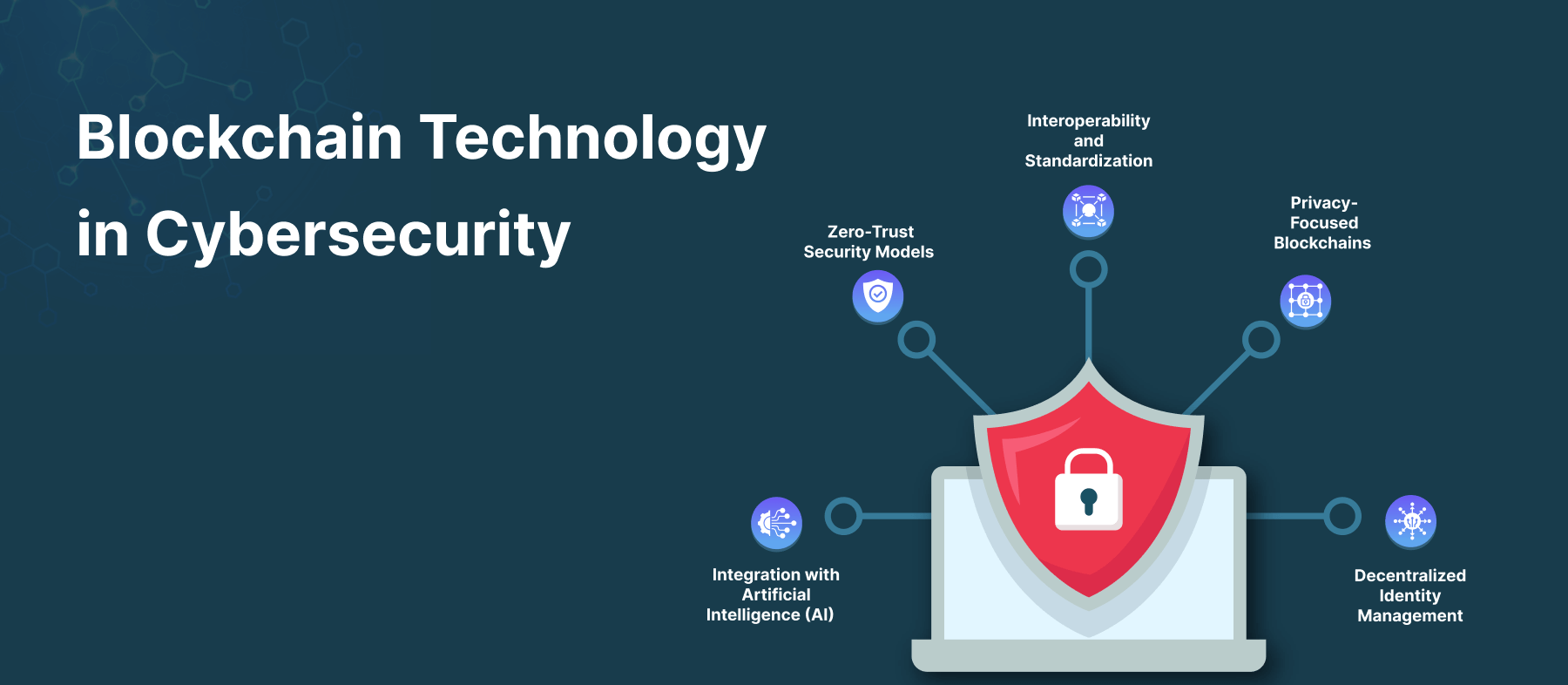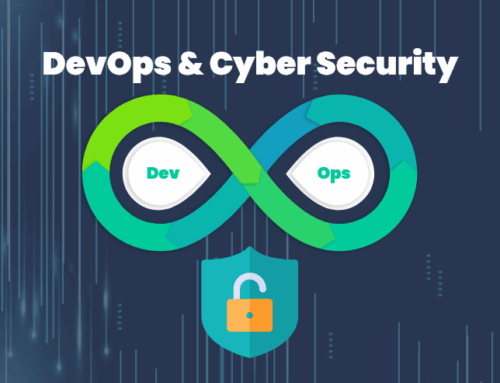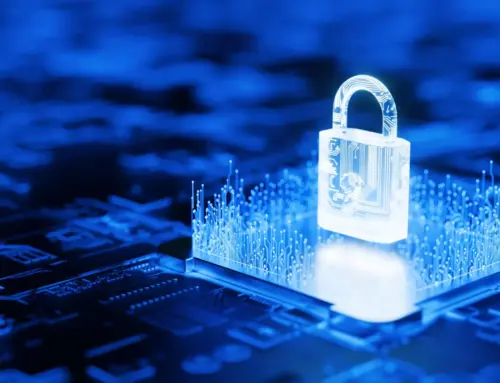
Blockchain and Cybersecurity: Opportunities and Challenges
In an era defined by the increasing reliance on technology, understanding blockchain and its implications for cybersecurity is more important than ever. digital transformation, the convergence of blockchain technologies and cybersecurity emerges as a critical frontier. While blockchain offers innovative solutions to enhance security, it also presents unique challenges that must be addressed. This article explores the opportunities and hurdles at the intersection of blockchain and cybersecurity, examining how blockchain technology can fortify digital defenses while also acknowledging the inherent security risks.
Understanding Cybersecurity
What is Cybersecurity?
Cybersecurity encompasses the processes, practices, and technologies designed to protect computer systems, networks, and data from cyber threats, damage, or unauthorized access. It is a multifaceted field involving risk assessment, threat detection, and the implementation of security measures to maintain the confidentiality, integrity, and availability of digital assets. Effective cybersecurity practices are essential for safeguarding sensitive information and ensuring business continuity through robust blockchain applications. As cybersecurity threats evolve, staying ahead requires continuous adaptation and the adoption of best practices.
Importance of Cybersecurity in Today’s Digital World
In today’s interconnected digital landscape, the importance of cybersecurity cannot be overstated, particularly in relation to blockchain transactions. Businesses, governments, and individuals alike are increasingly reliant on digital infrastructure, making them vulnerable to a wide range of cybersecurity threats, necessitating the integration of blockchain solutions. Data breaches, ransomware attacks, and other cyber incidents can result in significant financial losses, reputational damage, and disruption of critical services. A robust cybersecurity framework is crucial for protecting sensitive data, maintaining trust, and ensuring the stability of the digital ecosystem through the adoption of blockchain technology. Furthermore, the increasing complexity of supply chain networks necessitates enhanced security measures to prevent cascading vulnerabilities and ensure data security.
Current Cybersecurity Challenges
Despite advancements in cybersecurity solutions, organizations continue to face significant cybersecurity challenges, highlighting the need for the use of blockchain technology in their strategies. Traditional security approaches often rely on centralized systems, creating a single point of failure that can be exploited by malicious actors. The evolving nature of cybersecurity threats, including sophisticated phishing attacks and advanced malware, requires continuous adaptation and innovation in cybersecurity measures. Addressing these challenges necessitates the adoption of proactive security measures, such as threat intelligence, vulnerability management, and incident response planning, based on blockchain technology. Furthermore, the increasing use of cloud computing and IoT devices introduces new security challenges that demand comprehensive and The adoption of integrated cybersecurity solutions is essential for leveraging the full potential of enterprise blockchain applications. strategies, particularly in the context of blockchain applications. The rise of AI and blockchain also presents both opportunities and challenges for cybersecurity.
Exploring Blockchain Technologies
What is Blockchain?
Blockchain technology represents a revolutionary approach to data management and security, offering a decentralized and immutable ledger that can transform numerous industries. At its core, a blockchain is a distributed database that maintains a continuously growing list of records, called blocks, which are linked and secured using cryptography, ensuring security and integrity. This structure makes the blockchain system highly resistant to tampering and revision, as any alteration of a block requires the modification of all subsequent blocks, a computationally infeasible task. The potential to utilize blockchain technology to enhance security is vast, impacting everything from supply chain management to digital identity verification, making it a crucial area of focus for organizations seeking robust cybersecurity solutions.
Key Features of Blockchain Security
The key features of blockchain security stem from its decentralized nature and cryptographic underpinnings, which together offer a robust defense against various cybersecurity threats. One of the most significant aspects of blockchain security is its immutability, as once a block is added to the blockchain network, it cannot be altered or deleted, providing an auditable and transparent record of all transactions. Furthermore, the distributed consensus mechanisms, such as proof-of-work or proof-of-stake, require multiple nodes to validate transactions, mitigating the risk of a single point of failure. By using blockchain technology, organizations can enhance security and privacy, ensuring that data security is maintained and that trust is established among participants in the blockchain system. The blockchain offers a compelling approach to mitigating risks in environments where blockchain cybersecurity is paramount.
Use of Blockchain in Cybersecurity
The use of blockchain technology in cybersecurity presents a paradigm shift from traditional security models, offering innovative solutions to complex security challenges and enhancing integrated cybersecurity efforts. One of the primary applications of blockchain technology is in identity management, where blockchain ensures secure and verifiable digital identities, reducing the risk of identity theft and fraud while enhancing privacy and security. Furthermore, blockchain can be used to enhance data security by creating tamper-proof audit trails and secure storage solutions. The use of blockchain in cybersecurity also extends to supply chain management, where it can track the provenance of goods and ensure the integrity of data throughout the supply chain. By implementing blockchain solutions, organizations can create a more resilient and secure digital infrastructure, ensuring security against cybersecurity challenges and enhancing overall data security. As AI and blockchain continue to advance, the integration of these technologies holds promise for even more sophisticated cybersecurity solutions.
Blockchain and Cybersecurity Integration
How Blockchain Enhances Cybersecurity
Blockchain technology presents a paradigm shift in how organizations approach cybersecurity, offering multiple avenues to enhance security and mitigate risks. One of the most promising applications of blockchain in cybersecurity lies in its ability to create decentralized and immutable records of events, making it exceedingly difficult for malicious actors to tamper with critical data. By using blockchain technology, organizations can establish a robust audit trail, ensuring that all activities are transparent and traceable. This capability is particularly valuable in regulated industries where compliance and accountability are paramount, especially when integrating blockchain solutions for enhanced transparency. Furthermore, blockchain offers a secure means of managing digital identities, reducing the risk of identity theft and fraud.
Integrating AI and Blockchain for Enhanced Security
The integration of AI and blockchain represents a powerful synergy that can significantly enhance security. AI algorithms can analyze vast amounts of data stored on the blockchain network to detect anomalous patterns and potential cybersecurity threats, providing early warnings and enabling proactive security measures. Furthermore, AI can automate incident response, allowing organizations to react swiftly and effectively to security breaches. By using blockchain, the integrity of AI models can be ensured, preventing malicious actors from manipulating algorithms for nefarious purposes. This combination creates a resilient and intelligent cybersecurity framework capable of adapting to evolving cybersecurity challenges. The synergy of blockchain and AI promises to deliver innovative blockchain-based cybersecurity solutions.
Best Practices for Implementing Blockchain Security
Implementing blockchain security requires careful planning and adherence to best practices to ensure the blockchain system is robust and secure. Organizations should conduct a thorough risk assessment to identify potential cybersecurity issues and vulnerabilities before adopting blockchain technologies. This assessment should consider the specific applications of blockchain and the potential impact on existing systems. It is crucial to implement strong access controls and encryption to protect sensitive data stored on the public blockchain. Regularly auditing the blockchain network and updating security protocols are essential to address emerging cybersecurity threats. By following these best practices, organizations can effectively utilize blockchain to enhance data security and build a resilient cybersecurity framework.
Opportunities Presented by Blockchain in Cybersecurity
Potential of Blockchain Technology in Mitigating Cyber Threats
The potential of blockchain technology in mitigating cyber threats is vast and multifaceted. By using blockchain technology, organizations can enhance security across various domains, from data storage to identity management. One of the most compelling applications of blockchain security lies in its ability to create immutable and transparent records, making it exceedingly difficult for malicious actors to tamper with data. The inherent properties of blockchain ensure that data remains secure and verifiable, providing a robust defense against cybersecurity threats. As a result, blockchain offers a promising path to strengthen cybersecurity frameworks and mitigate risks effectively. Furthermore, the decentralized nature of the blockchain network reduces the risk of a single point of failure, enhancing overall system resilience.
Case Studies: Successful Integration of Blockchain
Several case studies highlight the successful integration of blockchain in cybersecurity, demonstrating the tangible benefits of this innovative approach. For example, some companies have leveraged blockchain to secure their supply chain networks, ensuring the provenance and integrity of goods as they move through the value chain. Another example is the use of blockchain in identity management, where secure and verifiable digital identities mitigate the risk of identity theft and fraud. These case studies illustrate the potential of blockchain in cybersecurity to address specific security challenges and enhance data security in real-world scenarios. By implementing blockchain, organizations can achieve significant improvements in their security posture and mitigate risks associated with cybersecurity threats. The applications of blockchain technology continue to expand, offering new opportunities to strengthen defenses.
Future Prospects for Blockchain in Cybersecurity
The future prospects for blockchain in cybersecurity are exceptionally promising, driven by ongoing innovations and the increasing recognition of its potential to address cybersecurity challenges. As AI and blockchain technologies continue to converge, we can expect more sophisticated and intelligent cybersecurity solutions to emerge. For example, AI algorithms can analyze blockchain data to detect anomalies and predict potential cybersecurity threats, providing early warnings and enabling proactive security measures. Furthermore, the use of blockchain can enhance the security and privacy of AI models, preventing malicious actors from manipulating algorithms. By adopting blockchain technology, organizations can build a more resilient and adaptive cybersecurity framework capable of responding to evolving cybersecurity threats. The applications of blockchain are set to revolutionize security practices.
Challenges and Risks of Blockchain in Cybersecurity
Cybersecurity Issues Related to Blockchain Systems
Despite the many advantages, blockchain systems are not immune to cybersecurity issues and challenges, highlighting the need for effective blockchain cybersecurity measures to ensure protection against cyber threats. One of the primary concerns is the potential for 51% attacks, where a malicious actor gains control of the majority of the blockchain network’s computing power, allowing them to alter transaction history and disrupt the blockchain system. Another cybersecurity issue is the risk of smart contract vulnerabilities, where flaws in the code of smart contracts can be exploited by attackers to drain funds or manipulate data. Furthermore, the immutability of blockchain can be a double-edged sword, as any data stored on the blockchain, including sensitive information, cannot be easily removed or modified, potentially leading to privacy concerns.
Possible Cybersecurity Threats from Blockchain Adoption
The adoption of blockchain in cybersecurity also introduces new and unique cybersecurity threats that organizations must be aware of. One of the most significant threats is the potential for phishing attacks targeting private keys, which are used to access and control blockchain transactions. If an attacker gains access to a user’s private key, they can steal funds or manipulate data stored on the blockchain. Another threat is the possibility of denial-of-service (DoS) attacks, which can disrupt the availability of blockchain services by overwhelming the network with traffic. It is crucial for organizations to implement robust security measures to mitigate these threats and protect their blockchain systems from attack. By utilizing blockchain, they can ensure the integrity and availability of their data.
Strategies to Mitigate Risks in Blockchain Security
Mitigating risks in blockchain security requires a multi-faceted approach that encompasses technological, organizational, and regulatory measures. One of the most effective strategies is to implement strong encryption and access controls to protect sensitive data stored on the blockchain. Organizations should also conduct regular security audits and penetration testing to identify vulnerabilities and address them proactively, ideally based on blockchain technology insights. Furthermore, it is essential to educate users about the risks of phishing attacks and social engineering and to implement robust authentication mechanisms, such as multi-factor authentication, within the blockchain platform. By using blockchain technology, organizations can leverage the inherent security features of blockchain to enhance data security. Adopting best practices and continuously monitoring the blockchain platform are crucial for maintaining a secure environment. Organizations can also adopt permissioned blockchain systems to enhance security and privacy.
5 Surprising Facts about Blockchain and Cybersecurity Opportunities and Risks
- Blockchain technology can enhance cybersecurity by providing a decentralized ledger that is resistant to tampering and fraud.
- Smart contracts on a blockchain can automate security protocols, reducing human error and improving response times to cyber threats.
- The transparency of blockchain can help organizations track and audit their cybersecurity measures, making it easier to identify weaknesses.
- While blockchain offers security benefits, it can also introduce new vulnerabilities, such as the risk of 51% attacks or flaws in smart contract code.
- Cybersecurity professionals are increasingly seeking expertise in blockchain technology, creating new job opportunities in an evolving job market.
What are the cybersecurity challenges associated with blockchain technologies?
The integration of blockchain technologies into cybersecurity presents various challenges, including the need for robust security measures to protect against cyber threats and ensure security across digital platforms. The decentralized nature of blockchain can mitigate some risks but also creates complexities in data security and governance, requiring innovative solutions to address these issues effectively.
How does blockchain technology enhance data security?
Blockchain technology enhances data security by providing a decentralized and immutable ledger that records transactions securely. Each block in the blockchain is linked to the previous one, making it nearly impossible to alter past data without consensus from the network, which is crucial for understanding blockchain security. This ensures that data stored on the blockchain remains secure and tamper-proof.
What are the best practices for implementing blockchain in cybersecurity?
When implementing blockchain in cybersecurity, organizations should follow best practices such as conducting thorough risk assessments, ensuring compliance with cybersecurity frameworks, and utilizing permissioned blockchains where appropriate. Additionally, ongoing training for staff and regular updates to security protocols can help mitigate risks associated with cybersecurity incidents.
How can blockchain solutions protect against cyber threats?
Blockchain solutions can protect against cyber threats by providing enhanced security features, such as encryption and decentralized data storage. By using blockchain, organizations can create a more secure environment that reduces the single point of failure often present in traditional security systems, thereby improving overall cybersecurity resilience.
What is the role of blockchain technology in the supply chain?
Blockchain technology plays a crucial role in the supply chain by enhancing transparency and traceability. By recording transactions on the blockchain, organizations can track the movement of goods and verify their authenticity, helping to prevent fraud and ensuring data security throughout the supply chain.
How can organizations mitigate security risks when adopting blockchain technology?
Organizations can mitigate security risks when adopting blockchain technology by implementing comprehensive cybersecurity strategies, including regular audits, vulnerability assessments, and the use of cybersecurity platforms. Additionally, integrating blockchain with artificial intelligence can provide advanced analytics to proactively identify and respond to potential security threats.
What are the potential of blockchain technology and its applications in cybersecurity?
The potential of blockchain technology in cybersecurity is vast, with applications ranging from secure identity management to secure data sharing among organizations. By adopting blockchain-based cybersecurity solutions, businesses can streamline their operations while enhancing security and privacy, ultimately leading to improved trust and compliance.
How does the combination of blockchain and artificial intelligence enhance cybersecurity?
The combination of blockchain and artificial intelligence enhances cybersecurity by providing a more robust framework for threat detection and response. AI algorithms can analyze large volumes of data recorded on the blockchain to identify patterns and anomalies, thereby improving the organization’s ability to respond to cybersecurity incidents swiftly and effectively.
What are the security features of blockchain that contribute to cybersecurity?
Security features of blockchain that contribute to cybersecurity include decentralization, cryptographic hashing, and consensus mechanisms. These features work together to ensure that all transactions are verified and recorded securely, making it difficult for malicious actors to manipulate data or compromise the integrity of the system.





